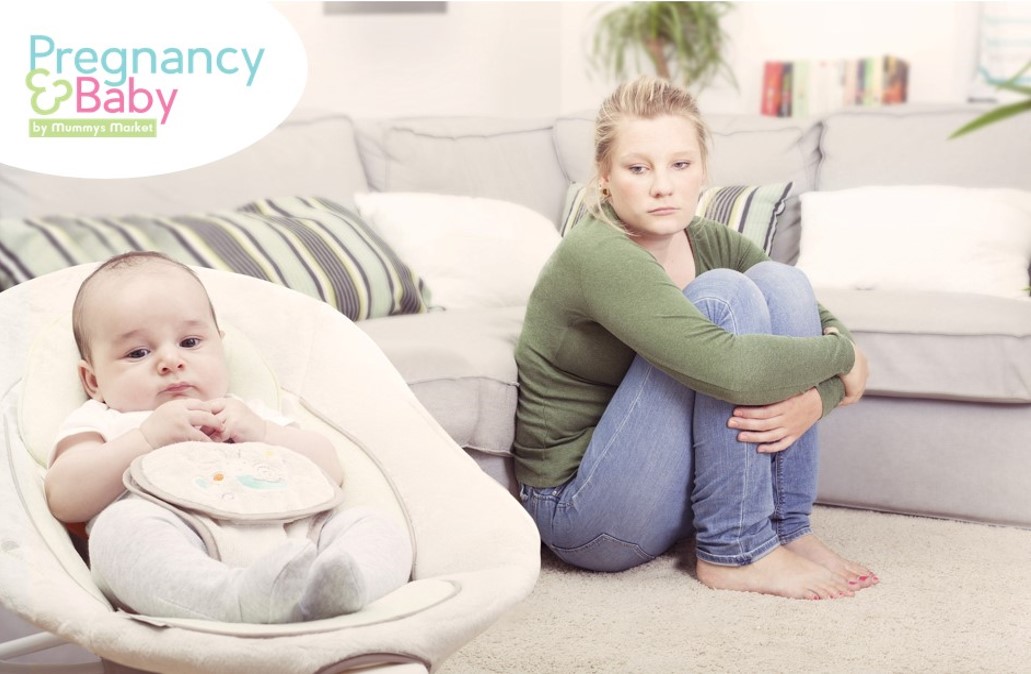

Postpartum depressions are common with 10 to 30% of women who have just given birth. Instead of feeling that joy and happiness of childbirth, they feel tearful, fatigue and depressed. Postpartum depression usually starts weeks after pregnancy, for those that exhibit these symptoms as early as possible. In most cases, they disappear on their own after a few weeks.
Postpartum depression is of great concern to family, and it has become part of postnatal care for mothers. Postpartum depression can affect the mother as well as the baby in various ways, such as improper feeding of the baby, the risk of a permanent health condition of the mother and may result in a breakup of a relationship.
What are Symptoms of Postpartum Depression?
Postpartum depression can be detected early especially if the change in mode is noticed by those closer to the woman who just gave birth. Some of the symptoms associated with postpartum depression include:
• The feeling of sadness or complete hopelessness
• Withdrawal symptom, where you feel uncomfortable around people and prefer to stay by yourself.
• When you no longer feel joy or enjoyment in what used to make you happy
• Insomnia, having trouble sleeping at night.
• When you have trouble staying awake during the day.
• Loss of appetite and extreme weight loss.
• Excess weight gain or eating too much.
• Crying for no reason.
• The feeling of sluggishness and restlessness.
• When you have difficulty concentrating.
• Becoming angry and irritable unnecessarily.
These are some of the symptoms that might be experienced by those suffering from postpartum depression. Once it is noticed, it is advisable to take the person for counseling and show them care and love.

What Causes Postpartum Depression
Postpartum depression can only be detected when it occurs. It does not show any form of predictive symptoms, although women are likely to experience postpartum depression when they were depressed during pregnancy. Postpartum depression is not something that can easily be controlled or avoided. It is caused by a genetic factor, something that is part of the DNA and its common with women from your family lineage. It is also caused by the combination of environmental and emotional factor, with the addition of the genetic factor.
Some other factors that may also be responsible for postpartum depression include physical exhaustion after giving birth, the adjustment involved in becoming parents especially for the first pregnancy, fear of giving birth and inadequate rest, feeling fatigue regularly.
Continue on next page...
Who is at Risk of Postpartum Depression?
Postpartum depression is common with a certain set of people living a lifestyle that may increase their chances of postpartum depression. It is common with people that have a stressful work schedule and those who did not take a break from work before and after delivery. It is also common with people that experience depression or anxiety during their period of pregnancy, as they may pass these emotions to when they have given birth to the baby. It is commonly experienced by women that have a traumatic childbirth experience, and this may cause some kind of depression during the period of recovery.
Some Causes of Postpartum Depression
There are cases of postpartum depression experienced by women who have no sort of social support. This happens in cases of a single mother who have no relatives or close ones around.
Also, family history of mental disorder can be responsible for postpartum depression. Lack of financial support to take care of the baby and state of unemployment can also be responsible for postpartum depression.
A case of unwanted or unplanned pregnancy can also result in postpartum depression. Cases of rape or domestic violence can also be responsible for a state of postpartum depression.
Postpartum depression can also occur in women when the baby has a complication after birth or in cases of multiple birth, twins or triplet.
Treatment of Postpartum Depression
Postpartum depression can be treated in various ways depending on the state of depression. For mild depression, talk therapy might be recommended in the form of counseling. On the other hand, cases of severe depression might require counseling and medications, an antidepressant to help with the depression.
Counselors may recommend personal or group therapy with other women undergoing postpartum depression. They may also decide to add the family members or your partner to the counseling section if they feel it may help quicken the recovery process.

The use of antidepressant involves the intake of a drug for chemical balance in the brain. This will, thus regulate the mood of the person. This may wear off in a matter of time, and the patient will need a new medication. The use of antidepressant can have a side effect, where one becomes addicted to the drugs. In some cases. This might cause physical changes in the body such as rashes. Whenever you notice side effect from an antidepressant drug, you should consult your physical so as to change the dosage of the kind of drug prescribed to you.
Subscribe to our mailing list and LIKE US on Facebook to receive more tips and insights on pregnancy and parenting!
Copyrighted Pregnancy & Baby by Mummys Market 2019


